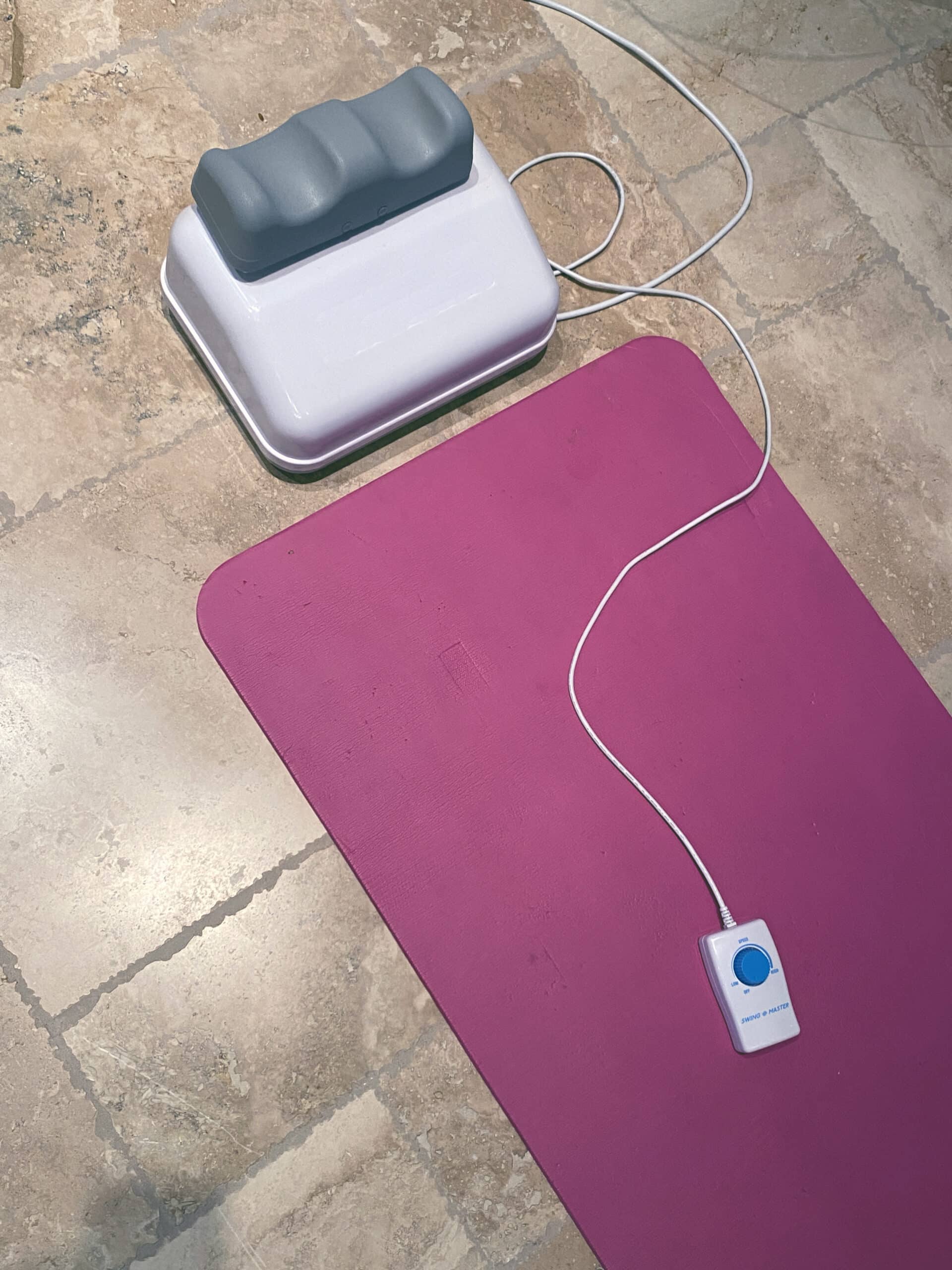Understanding Chronic Inflammatory Response Syndrome (CIRS) can be tricky. CIRS is a complex, multi-symptom condition that results from an individual’s reaction to chronic exposure to environmental toxins. These toxins, often stemming from water-damaged buildings, mold, and mycotoxins, trigger a prolonged and overwhelming inflammatory response in the body. While CIRS is still relatively under-recognized by conventional medicine, awareness of the condition is growing, and it’s crucial for those suffering from it to understand its symptoms, effects, and potential treatment options.
In this blog post, we’ll explore what CIRS is, how it impacts the body, and the steps you can take to manage it.

Understanding What CIRS Is
Chronic Inflammatory Response Syndrome (CIRS) is a condition in which the body’s immune system remains in a constant state of inflammation due to exposure to environmental toxins like mold and biotoxins. In people with CIRS, the immune system struggles to clear these harmful substances effectively. This leads to a variety of symptoms that can affect many systems of the body.
The body typically uses inflammation as a protective response when it detects something harmful, like an infection. However, in the case of CIRS, the inflammation becomes chronic and sustained, leading to widespread tissue damage and disruption of normal bodily functions.
CIRS is often linked to biotoxin exposure, including mold spores, mycotoxins, and bacteria found in damp or water-damaged buildings. This syndrome can also be triggered by Lyme disease, certain kinds of toxins, or even heavy metals.
How Does CIRS Affect the Body?
CIRS can affect virtually every organ and system in the body. The inflammation brought on by prolonged exposure to these harmful substances can result in a wide range of symptoms that can range from mild to severe. Here are some of the key areas where CIRS can have a significant impact:
1. Neurological and Cognitive Symptoms
One of the most noticeable and distressing effects of CIRS is the impact on cognitive function. Many individuals with CIRS experience symptoms such as:
- Brain fog: A sense of mental confusion, lack of clarity, and difficulty concentrating.
- Memory issues: Difficulty remembering facts, names, and other information.
- Headaches: Frequent or chronic headaches, often described as pressure-like or tension headaches.
- Dizziness or balance problems: Feeling lightheaded, off-balance, or vertigo.
- Mood changes: Increased feelings of anxiety, depression, irritability, or emotional instability.
These neurological symptoms can significantly affect quality of life, making it difficult for individuals to function at work, at home, or in social situations.
2. Immune System Dysfunction
CIRS is characterized by a persistent immune response that doesn’t resolve properly. This ongoing immune activation can lead to:
- Increased inflammation: Chronic inflammation can damage tissues, organs, and systems over time, weakening the body’s ability to fight off other infections and causing widespread symptoms.
- Increased susceptibility to infections: A compromised immune system may make individuals with CIRS more vulnerable to common infections, including viral or bacterial illnesses.
- Autoimmune-like reactions: In some cases, the chronic immune activation seen in CIRS may resemble autoimmune conditions, where the body begins attacking its own tissues.
3. Respiratory and Sinus Issues
Exposure to mold and mycotoxins is one of the primary causes of CIRS, and these toxins can cause significant damage to the respiratory system. Common respiratory symptoms include:
- Chronic cough: Persistent coughing that doesn’t resolve with typical treatments.
- Shortness of breath: Difficulty breathing or feeling winded even after mild physical activity.
- Sinus issues: Chronic sinus congestion, sinus infections, or pressure in the sinuses.
- Wheezing: Difficulty breathing or a wheezing sound, often associated with asthma-like symptoms.
These respiratory symptoms can be mistaken for allergies or asthma, making it crucial to understand and investigate mold and environmental toxins as potential underlying causes.
4. Gastrointestinal Disturbances
The chronic inflammation seen in CIRS can also affect the gastrointestinal system, leading to:
- Digestive issues: Symptoms such as bloating, gas, constipation, diarrhea, or irritable bowel-like symptoms.
- Food sensitivities: Many people with CIRS develop sensitivities or intolerances to certain foods.
- Nausea or vomiting: Some individuals experience nausea, which may be related to the body’s overall inflammatory state.
These digestive symptoms can be distressing and may mimic other gastrointestinal disorders, making CIRS a difficult condition to understand, diagnose and manage.
5. Fatigue and Malaise
Fatigue is one of the hallmark symptoms of CIRS. Individuals with this condition often experience:
- Persistent tiredness: Despite getting adequate rest, people with CIRS often feel exhausted, drained, and unable to recharge.
- Exercise intolerance: Physical exertion can exacerbate symptoms, leading to increased fatigue, joint pain, and muscle weakness.
- Unrefreshing sleep: Even if you sleep through the night, the quality of sleep may be compromised, leaving you feeling unrested or as though you’ve barely slept.
This chronic fatigue can be one of the most debilitating aspects of CIRS, often leaving people unable to perform daily activities.
6. Hormonal Imbalance
Chronic inflammation in CIRS can also affect hormone production, leading to:
- Adrenal fatigue: Due to ongoing stress and inflammation, the adrenal glands can become depleted, affecting cortisol levels and leading to symptoms of adrenal fatigue.
- Thyroid dysfunction: Many individuals with CIRS experience thyroid-related symptoms, such as weight gain, cold intolerance, and dry skin, often due to thyroid hormone imbalances.
This imbalance can make it even more difficult to manage the symptoms of CIRS and can contribute to the overall feeling of being “run down.”
Diagnosis and Treatment of CIRS
Diagnosing CIRS can be challenging because its symptoms often overlap with other chronic conditions, such as Lyme disease, fibromyalgia, or chronic fatigue syndrome. However, specialized tests and assessments can help identify the presence of mold exposure or biotoxins.
Tests may include:
- Blood tests to measure inflammatory markers and biotoxin exposure.
- Genetic testing to determine whether a person has a genetic predisposition to CIRS (this involves checking for certain genetic markers that affect the body’s ability to detoxify).
- Neurocognitive testing to assess brain function and cognitive impairment.
Treatment for CIRS typically involves a multifaceted approach that addresses both the root cause of the condition (toxin exposure) and the resulting inflammation and immune dysfunction. Common treatment methods include:
- Eliminating exposure: The most critical step in treating this is to remove the individual from the environment causing the toxin exposure, such as moving out of a mold-infested building or addressing water damage.
- Detoxification: Detox protocols, including the use of binders (e.g., activated charcoal, cholestyramine), are often used to help the body eliminate stored toxins.
- Anti-inflammatory treatments: Various medications or supplements (like antioxidants, anti-inflammatory herbs, etc.) may be used to reduce inflammation and support immune function.
- Supportive therapies: These may include nutritional support, stress reduction techniques, and lifestyle modifications to help support the body’s healing process.
Conclusion
CIRS is a complex and often debilitating condition that can affect many areas of your health, from cognitive function to digestion and immune system response. Understanding the symptoms and taking proactive steps to diagnose and address the root causes of CIRS can help individuals improve their quality of life.
If you suspect that you may have CIRS, it’s crucial to work with a healthcare provider familiar with the condition to get the proper testing, diagnosis, and treatment. With the right support and lifestyle changes, many people can recover from the symptoms of CIRS and regain their vitality.
If you or someone you know is suffering from unexplained, chronic symptoms, it may be time to consider CIRS as a potential cause and take steps to raise awareness and pursue treatment. Your health and well-being are worth the effort.







One Response
Hi, this is a comment.
To get started with moderating, editing, and deleting comments, please visit the Comments screen in the dashboard.
Commenter avatars come from Gravatar.